
The Tree of Language and the Senses of Its Leaves
The Tree of Language and the Senses of Its Leaves
How Arabic endures, evolves, and continues to root itself in the spirit of its people
By: Dr. Mohd Sayeed Anwar
Language: The Vessel of Thought
Language is the storehouse of a nation’s intellect. Within it, ideas germinate and grow, and through it, they travel from one mind to another. It is not static—it is a living, breathing entity that matures alongside civilization. Among the world’s enduring languages, Arabic stands tall. It not only survived but thrived, accompanying Muslim conquests across continents and becoming the national tongue of countless non-Arab peoples.
Yet, despite its deep heritage and the divine honor of being the language of the Qur’an, Arabic has faced countless challenges. From time to time, populist voices have emerged—casting doubt on its relevance, promoting local dialects, or even portraying Arabic as a relic of cultural domination. Ironically, these voices often speak their critique in broken Arabic, unable to articulate their rebellion in the very language they seek to abandon.
Populism and Language: An Age-Old Tension
These waves of resistance are not new. They emerge in moments of political or cultural fragility. They are fleeting bubbles of unrest, inflated by a sense of insecurity. Across history, many languages have disappeared into silence—leaving behind nothing but inscriptions on stone or faded manuscripts. Latin once ruled over vast territories, yet today it lives only in ritual and scholarship. Ancient tongues like Syriac and Assyrian flourished, then vanished.
Language is no mere tool—it is woven into the very lifeblood of a civilization. When a nation rises, its language flourishes. When it falters, the language weakens with it. A nation’s achievements—its innovations, its poetry, its struggles—are preserved through language, passed down in spoken word and written script.
Arabic, in this sense, is a resilient archive. Despite the colonial forces that once sought to replace it—French, Spanish, British, and Italian—Arabic persisted. Colonizers departed, but Arabic remained. Algeria is a particularly striking example: under French rule for over a century, the Arabic language became a core instrument of resistance. The colonizer’s effort to erase it ultimately failed.
The Modern Challenge: Arabic in the Age of Science
Today, the fast-paced world of science, medicine, and technology poses a serious test to Arabic. The language struggles in some of these arenas—not due to any inherent weakness, but because the necessary infrastructure and scholarly effort have lagged behind. The gap is real, but it is bridgeable.
Across the Arab world, we have the minds and the means to meet this challenge. Nations with fewer resources—like Vietnam, South Korea, and Israel—have successfully adapted their languages to accommodate scientific development. China and Japan, too, have translated nearly every domain of science into their national tongues, fueling research, industry, and innovation.

Arabic can do the same. But like any tree, language needs nurturing. It needs care, attention, and cultivation. As Taha Hussein, the Dean of Arabic Literature, once said:
“Arabic is ease, not hardship. We possess it as the ancients did, and we are entitled to enrich it as they enriched it.”
It is our tree—our shared shelter—and we must protect and cultivate it.
Bridging Civilizations through Language
No civilization can thrive in isolation. To be part of the modern world, we must open our minds to the discoveries and creativity of others. Fortunately, we already have thousands of Arab scholars trained in universities around the world. They are equipped with linguistic skills and scientific expertise—and they can lead the movement to Arabize knowledge.
This is not a call to reject foreign languages. On the contrary, we must strengthen our foreign language education—embracing English, French, and even Chinese. These are windows into other worlds, and we should open them wide.
A Unifying Thread
Arabic remains the spiritual and cultural bond uniting Arabs across borders. Even in an age of digital distraction and viral discourse, this ancient tongue continues to reinvent itself. Social media, surprisingly, has given birth to what some now call a “third Arabic”—a simplified, shared mode of expression understood by all.
Though some voices may try to fray the threads of unity, Arabic still connects us. It still lives. It still speaks. And it still grows—leaf by leaf, word by word.
(A transcription of the original Arabic Article published in Asharq- Al-Awsat on April 26, 2025, written by Abdurrahman Shalqam)
You May Also Like
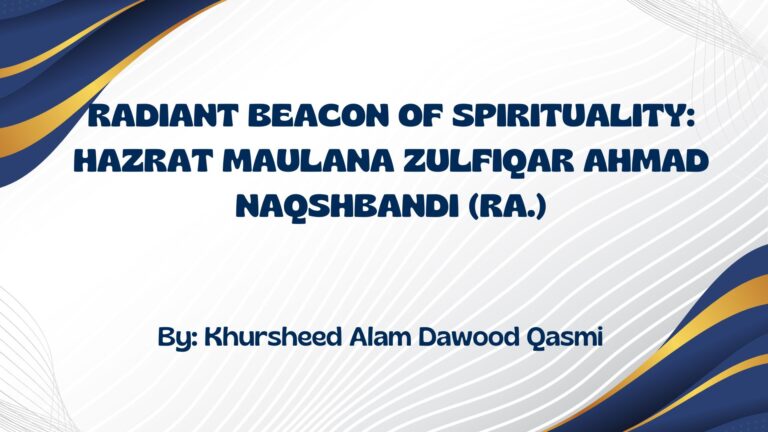 Articles
ArticlesRadiant Beacon of Spirituality: Hazrat Maulana Zulfiqar Ahmad Naqshbandi (Rah.)
By: Khursheed Alam Dawood Qasmi First Acquaintance with Peer Sahib: It was around the...
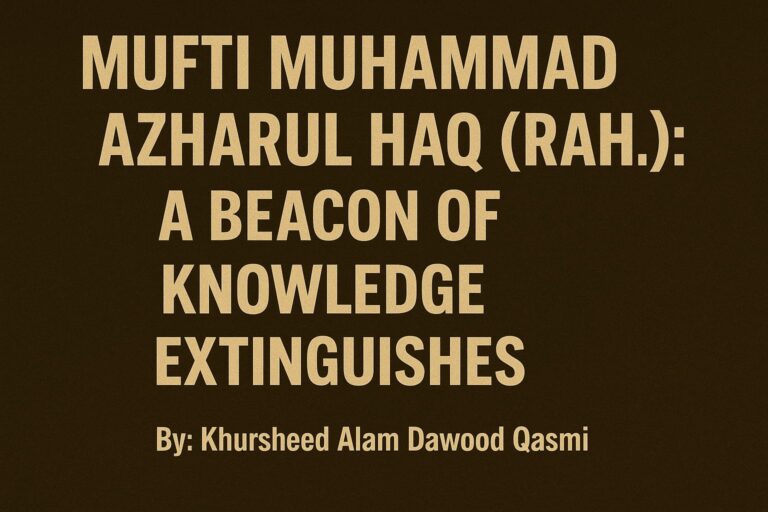 Articles
ArticlesMufti Muhammad Azharul Haq (Rah.): A Beacon of Knowledge Extinguishes
Mufti Muhammad Azharul Haq (Rah.): A Beacon of Knowledge Extinguishes By: Khursheed Alam Dawood...
 Articles
ArticlesBegin the New Year with Self-Introspection and a Life Manifesto
Begin the New Year with Self-Introspection and a Life Manifesto By: Mohammad Taukir Rahmani...
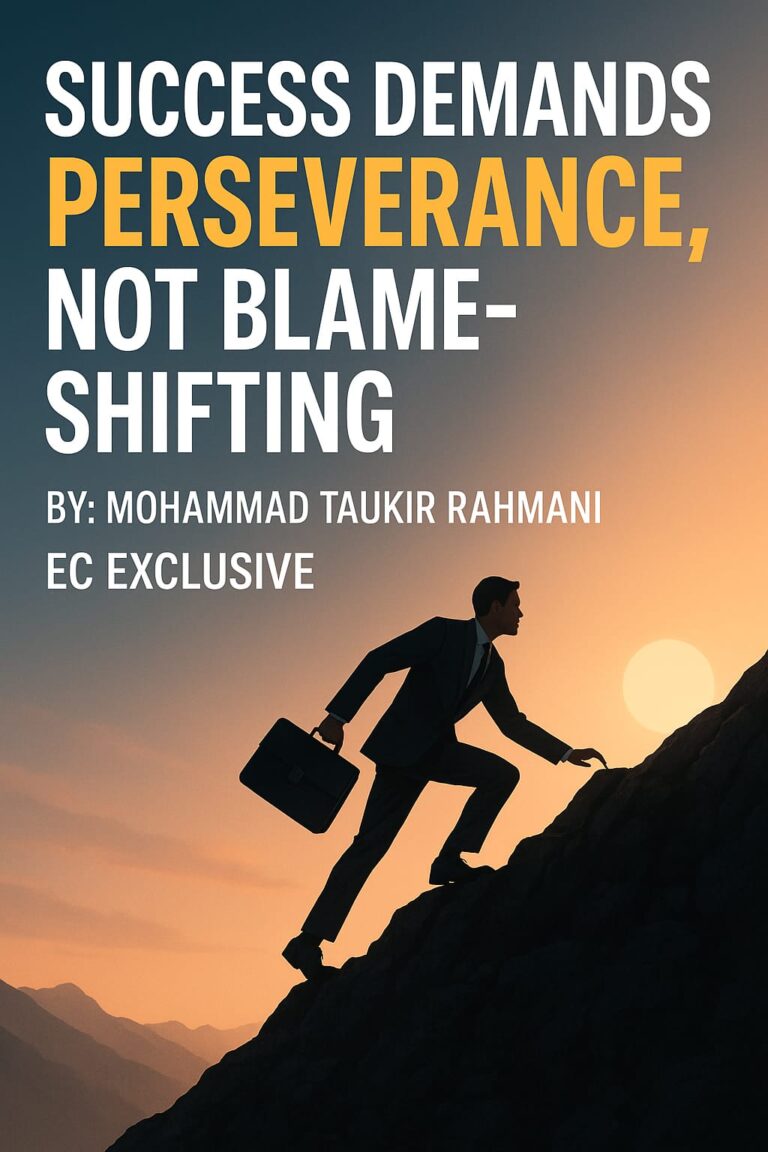 Articles
ArticlesSuccess Demands Perseverance, Not Blame-Shifting
Success Demands Perseverance, Not Blame-Shifting By: Mohammad Taukir Rahmani EC Exclusive Across the horizon...
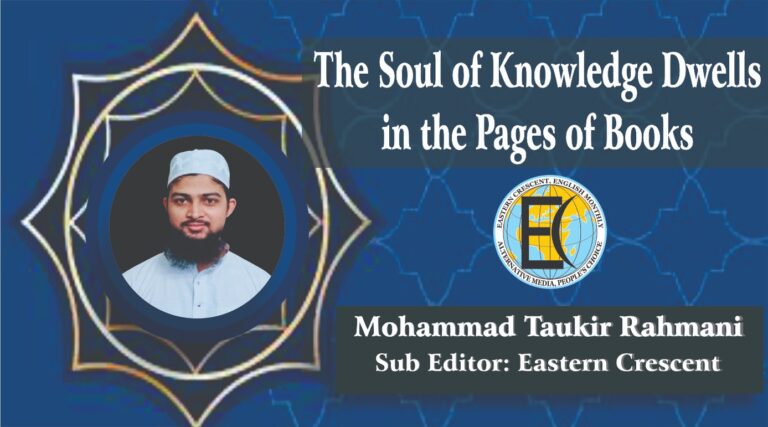 Articles
ArticlesThe Soul of Knowledge Dwells in the Pages of Books
The Soul of Knowledge Dwells in the Pages of Books By: Mohammad Taukir Rahmani...
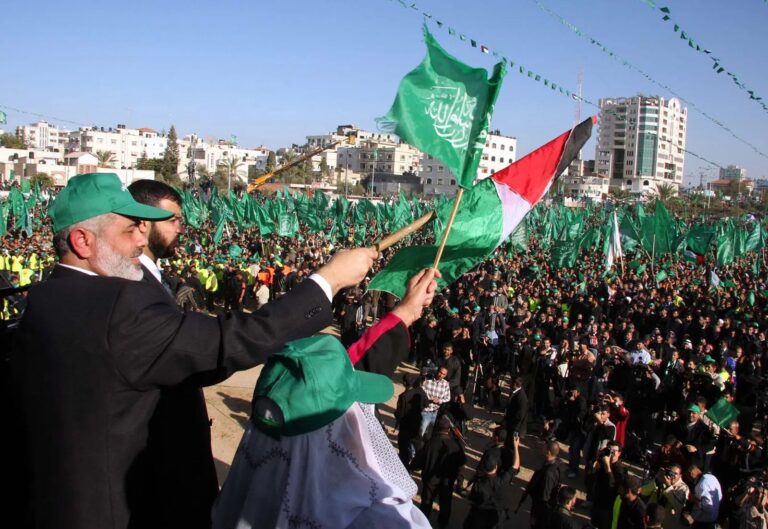 Articles
ArticlesEstablishment of Hamas and its Reason
Establishment of Hamas and its Reason By: Khursheed Alam Dawood Qasmi Propaganda against Hamas...

Comments (1)
Leave a Comment
Great post. I was checking continuously this blog and I'm impressed! Extremely helpful info specifically the last part :) I care for such information a lot. I was seeking this certain information for a long time. Thank you and good luck.